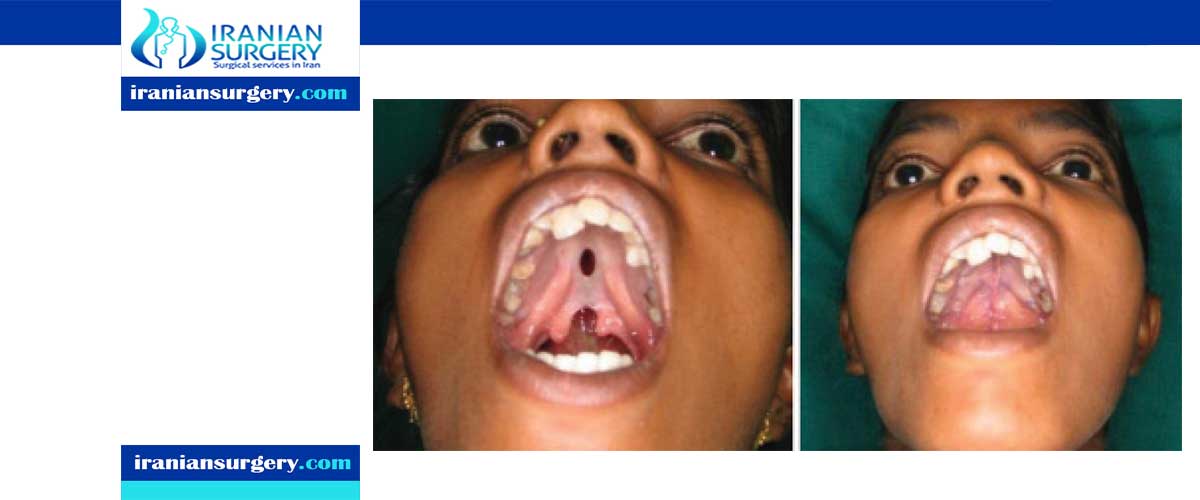Cleft palate surgery complications

Cleft palate surgery complications
The repair of a cleft lip and/or palate is important for your child's development and quality of life. Your plastic surgeon will explain the benefits, goals and potential risks or complications. You will be asked to sign consent forms to ensure that you fully understand the procedure, the alternatives and the most likely risks or potential complications.
Possible cleft surgery complications include:
- Bleeding
- Infection
- Poor healing of incisions
- Irregular healing of scars including shortening, thickening or overgrowth
- Residual irregularities and asymmetries in the lip or nose
- Anesthesia risks
- Respiratory problems after surgery
- Allergies to tape, suture materials and glues, topical preparations or injected agents
- Damage to deeper structures—such as nerves, blood vessels, muscles and auditory canal can occur and may be temporary or permanent
- Possibility of revisional surgery
Beyond the cosmetic abnormality, there are other possible complications that may be associated with cleft lip and cleft palate, including the following:
- Feeding difficulties occur more with cleft palate abnormalities. The infant may be unable to suck properly because the roof of the mouth is not formed completely.
- Ear infections are often due to a dysfunction of the tube that connects the middle ear and the throat. Recurrent infections can then lead to hearing loss.
- Due to the opening of the roof of the mouth and the lip, muscle function may be decreased, which can lead to a delay in speech or abnormal speech. Referral to a speech therapist should be discussed with your child's physician.
- As a result of the abnormalities, teeth may not erupt normally and orthodontic treatment is usually required.
10 common questions about Cleft palate surgery complications
1Is cleft palate surgery dangerous?
There are risks of problems after any operation. Cleft palate repair, or palatoplasty, is an effective and reliable operation in a large majority of children, but there are two main risks. The first is the risk of fistula, or a hole in the repaired palate.
2What problems can result from a cleft palate?
While most babies with cleft lip can breast-feed, a cleft palate may make sucking difficult. Ear infections and hearing loss. Babies with cleft palate are especially at risk of developing middle ear fluid and hearing loss. Dental problems
3At what age is cleft palate repair?
Although there are some different schools of thought on the matter, most plastic surgeons believe that the ideal patient age for undergoing cleft palate repair surgery is between 6 to 18 months of age (though the favored age for cleft lip repair is generally much earlier, at about 10 to 12 weeks old)
4Can cleft palate cause death?
The overall mortality rate was 36 per 1000 cleft births. A total of 21 deaths were in the isolated cleft palate group, with a calculated death rate of 68.1 per 1000. ... The causes of death were mainly due to associated congenital anomalies (61%) and infection (17%)
5Is cleft palate life threatening?
Cleft lip and cleft palate can range from very mild to more severe and the two conditions can occur separately or together. ... Cleft lip and cleft palate are not life-threatening, but they can affect speech, feeding, and hearing, and they need to be repaired
6Can you see a cleft palate on an ultrasound?
Cleft lip may be detected with ultrasound beginning around the 13th week of pregnancy. As the fetus continues developing, it may be easier to accurately diagnose a cleft lip. Cleft palate that occurs alone is more difficult to see using ultrasound. ... However, most often the cause of cleft lip and cleft palate is unknown
7What is the main cause of cleft palate?
Causes and Risk Factors
Cleft lip and cleft palate are thought to be caused by a combination of genes and other factors, such as things the mother comes in contact with in her environment, or what the mother eats or drinks, or certain medications she uses during pregnancy
8Is cleft palate surgery painful?
Cleft palate repair is surgery to fix a split (cleft) in the roof of the mouth, which is called the palate. ... Your child may need pain medicine for the first few days after surgery. The area around your child's mouth may be swollen for the first 1 to 2 weeks after surgery
9How many surgeries does it take to fix a cleft palate?
How many surgeries is average to correct the palate and make it not-so-noticeable? That varies from patient to patient. At the minimum, one surgery is needed to repair the lip and a separate surgery is needed to repair the palate. However, several surgeries are needed to make the lip appear as normal as possible.
10Does cleft palate affect speech?
Children with a cleft that affects their soft palate (the part towards the back of the throat) may have problems with speech that include sounding nasal. This is caused by the soft palate not being able to properly close off the mouth from the nose while speaking and therefore letting air escape through the nose
[kkstarratings]


